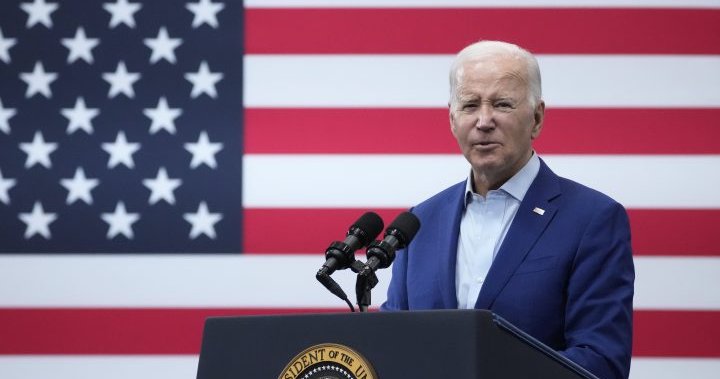President Joe Biden signed an executive order on Wednesday that establishes strict limitations on certain U.S. investments in sensitive technology in China. The order grants the U.S. Treasury secretary the power to restrict or prohibit U.S. investments in Chinese entities operating in semiconductors and microelectronics, quantum information technologies, and specific artificial intelligence systems. According to Biden, this action is necessary to address the threat posed by countries like China in areas crucial to military, intelligence, surveillance, and cyber capabilities.
The order primarily targets investments in Chinese companies involved in software development for chip design and manufacturing tools. Considered leaders in these fields, the U.S., Japan, and the Netherlands have dominated the market, prompting the Chinese government to work towards establishing domestic alternatives. While the move could potentially escalate tensions between the two largest economies, U.S. officials assert that the prohibitions focus on the most critical national security risks and aim to protect their highly interdependent economies.
Senate Democratic Leader Chuck Schumer commended Biden’s order, stating that American investments should not contribute to China’s military advancement. He highlighted the need for Congress to refine and legally enforce these restrictions. Conversely, Republicans criticized the order for not going far enough. House Foreign Affairs Committee Chairman Michael McCaul expressed concern over the exclusion of existing technology investments and sectors like biotechnology and energy.
The order’s primary goal is to prevent American capital and expertise from supporting China’s military modernization, which could undermine U.S. national security. It specifically targets private equity, venture capital, joint ventures, and greenfield investments. Investment transactions falling under the order will require government notification, with some transactions being outright prohibited. However, the Treasury plans to exempt certain transactions, including those involving publicly-traded instruments and intra-company transfers from U.S. parents to subsidiaries.
The Chinese Embassy in Washington did not immediately respond to requests for comment. However, the embassy previously criticized the United States for politicizing technology and trade issues in the name of national security. Republican Senator Marco Rubio called the proposal “laughable” and criticized its loopholes and failure to consider industries regarded as critical by the Chinese government. Democratic Senator Bob Casey viewed Biden’s order as a step toward mitigating risks posed by countries like China.
It is important to note that the order will only impact future investments and will not affect existing ones. The Biden administration engaged with U.S. allies and partners during the development of these restrictions and will continue to coordinate with them to advance shared goals. Implementation of the executive order is expected next year, following multiple rounds of public comment.
The regulatory framework for the order will be defined through an advance notice of proposed rulemaking, allowing for public feedback before a formal proposal is made. Investments in semiconductors expected to fall under restrictions will align with the U.S. Department of Commerce’s October export control rules for China. Emily Benson of the Center for Strategic and International Studies (CSIS) predicts that investments in artificial intelligence will be prohibited for military applications, while other investments in the sector will only require government notification. The administration will bear the responsibility of determining the military classification of AI and establishing its definition.
While regulations regarding AI are still being developed, the order is also expected to ban certain sensors and related components in quantum computing. However, potential exemptions may apply to universities and research institutions.
Overall, President Biden’s executive order introduces stringent restrictions on U.S. investments in Chinese technology sectors deemed sensitive. Its aim is to safeguard national security by preventing the development of technologies that could bolster China’s military capabilities.
Denial of responsibility! VigourTimes is an automatic aggregator of Global media. In each content, the hyperlink to the primary source is specified. All trademarks belong to their rightful owners, and all materials to their authors. For any complaint, please reach us at – [email protected]. We will take necessary action within 24 hours.


